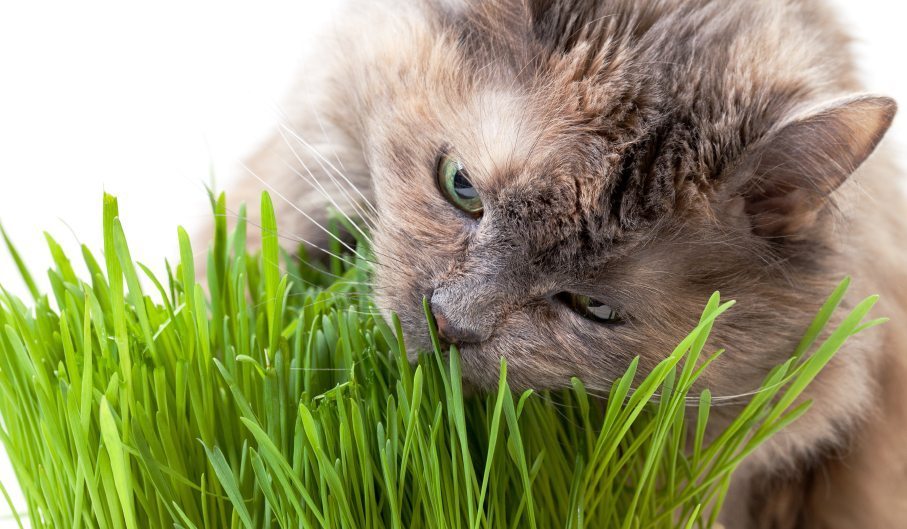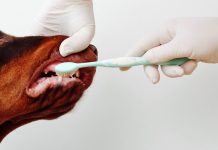 So what is it about cats eating grass? We’ve all seen them do it and then we see them throw up right afterward. The important question to ask: Is eating grass dangerous for your cat? Here’s some information to carry with you the next time you see your cats eat grass.
So what is it about cats eating grass? We’ve all seen them do it and then we see them throw up right afterward. The important question to ask: Is eating grass dangerous for your cat? Here’s some information to carry with you the next time you see your cats eat grass.
A Danger?
It’s an oddity, to be sure, but according to petmd.com, there’s no danger to your cat. In fact, it’s possible that eating grass can be beneficial to her. How? Eating grass and then vomiting it after can get rid of all of that indigestible material from her digestive tract, and that makes her feel better. The reason they throw up is because they don’t have the necessary enzymes to break down vegetable matter. They’re carnivores, plain and simple.
Another thing to know, is that there are juices in the grass blades that contain folic acid. This is a really important element for feline bodily functions and helps proteins move oxygen in the blood.
Digestive Aid
Cats regularly groom themselves and that means that excess fur is getting into the digestive tract. There are times when your cat has to help this extra fur move along its way and sometimes a little grass will help that out greatly. There are those experts out there who also believe that grass eating soothes a sore throat.
A good idea that’s an alternative to your cat eating grass outside on your lawn is to plant a tray of cat grass or start an herbal garden inside. This is helpful because it will prevent your cat from eating grass in the yard that may be treated with chemicals or pesticides.
House Plants
We’ve also all seen cats eat our house plants from time to time. This is probably due to the same issues that cause your cat to eat grass. One important warning, though, is to make sure that all of your houseplants are nontoxic.
Some of the most common types of poisonous plants are:
- Amaryllis
- Autumn Crocus
- Azaleas and Rhododendrons
- Chrysanthemum
- Cyclamen
- English Ivy
- Lilies
- Marijuana
- Oleander
- Peace Lily
- Pothos
- Sago Palm
- Spanish thyme
- Tulip and Narcissus bulbs
- Yew
The ASPCA has a more exhaustive list and if you have a cat that you suspect has eaten a poisonous plant, call the pet poison helpline at 1-855-213-6680.
Photo Credit: istockphoto.com











